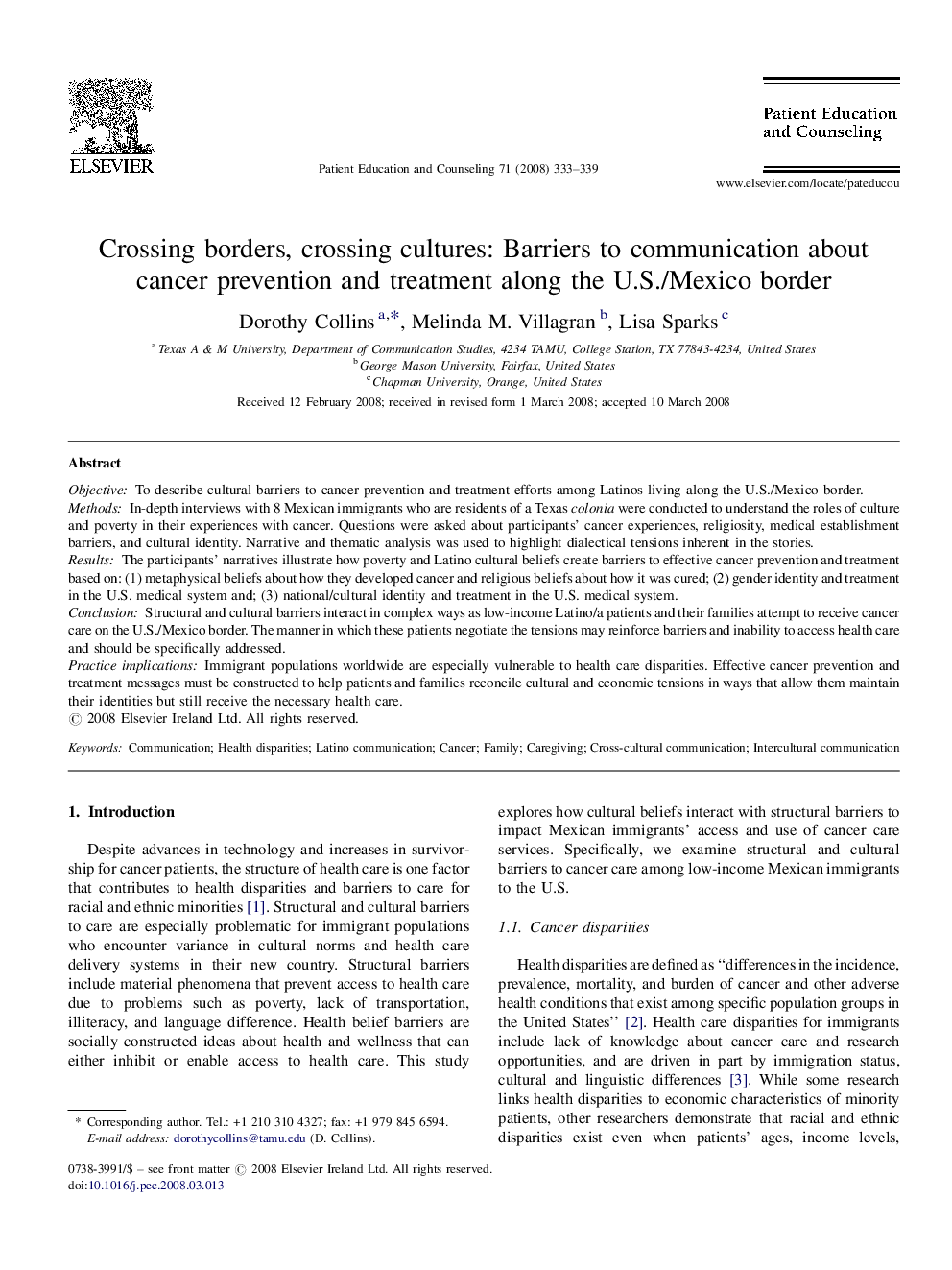| Article ID | Journal | Published Year | Pages | File Type |
|---|---|---|---|---|
| 3815985 | Patient Education and Counseling | 2008 | 7 Pages |
ObjectiveTo describe cultural barriers to cancer prevention and treatment efforts among Latinos living along the U.S./Mexico border.MethodsIn-depth interviews with 8 Mexican immigrants who are residents of a Texas colonia were conducted to understand the roles of culture and poverty in their experiences with cancer. Questions were asked about participants’ cancer experiences, religiosity, medical establishment barriers, and cultural identity. Narrative and thematic analysis was used to highlight dialectical tensions inherent in the stories.ResultsThe participants’ narratives illustrate how poverty and Latino cultural beliefs create barriers to effective cancer prevention and treatment based on: (1) metaphysical beliefs about how they developed cancer and religious beliefs about how it was cured; (2) gender identity and treatment in the U.S. medical system and; (3) national/cultural identity and treatment in the U.S. medical system.ConclusionStructural and cultural barriers interact in complex ways as low-income Latino/a patients and their families attempt to receive cancer care on the U.S./Mexico border. The manner in which these patients negotiate the tensions may reinforce barriers and inability to access health care and should be specifically addressed.Practice implicationsImmigrant populations worldwide are especially vulnerable to health care disparities. Effective cancer prevention and treatment messages must be constructed to help patients and families reconcile cultural and economic tensions in ways that allow them maintain their identities but still receive the necessary health care.
